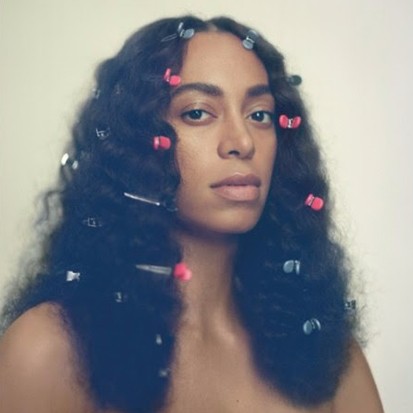Solange and the Sounds of Blackness
 Master P’s commentary is spread throughout Solange’s A Seat at the Table album. “If you don't understand us and understand what we've been through,” the entrepreneur and No Limit general proclaims at the set’s halfway mark, “then you probably wouldn't understand what this moment is about.”Table is Solange’s moment to happily be exclusionary, because being Black is a hard, particularly lonely experience and that’s what Table is about. As is said verbatim on its “F.U.B.U.,” “this shit is for us” and that goes for our struggles and the set’s 51 minutes. It’s basically the album’s mission statement.https://twitter.com/kendricklamar/status/782759892993978368On “Don’t Touch My Hair,” what some might see as a triviality becomes a loaded issue. “Don't touch my hair/ When it's the feelings I wear,” she both orders and explains. “Don’t touch my soul/ When it's the rhythm I know/ Don’t touch my crown/ They say the vision I've found.”Solange’s voice is lithe and nimble, but her lyrics speak loudly to familiar troubles. On “Cranes in the Sky,” she sings of trying to drink, sex and spend away the ongoing pain she’s experiencing as a Black woman. “I ran my credit card bill up/ Thought a new dress would make it better,” she explains. “I tried to work it away/ But that just made me even sadder.”https://www.youtube.com/watch?v=S0qrinhNnOMA Seat at the Table feels like Solange is huddling a bunch of like-minded, like-skinned individuals and talking to us (Hi, reader. I'm Black) specifically. On “F.U.B.U.” she hopes her teen son will play the song loud enough to make his walls rattle because it encourages Black pride and his kind is growing up in a world where Trayvon Martin-like tragedies eerily happen too often.
Master P’s commentary is spread throughout Solange’s A Seat at the Table album. “If you don't understand us and understand what we've been through,” the entrepreneur and No Limit general proclaims at the set’s halfway mark, “then you probably wouldn't understand what this moment is about.”Table is Solange’s moment to happily be exclusionary, because being Black is a hard, particularly lonely experience and that’s what Table is about. As is said verbatim on its “F.U.B.U.,” “this shit is for us” and that goes for our struggles and the set’s 51 minutes. It’s basically the album’s mission statement.https://twitter.com/kendricklamar/status/782759892993978368On “Don’t Touch My Hair,” what some might see as a triviality becomes a loaded issue. “Don't touch my hair/ When it's the feelings I wear,” she both orders and explains. “Don’t touch my soul/ When it's the rhythm I know/ Don’t touch my crown/ They say the vision I've found.”Solange’s voice is lithe and nimble, but her lyrics speak loudly to familiar troubles. On “Cranes in the Sky,” she sings of trying to drink, sex and spend away the ongoing pain she’s experiencing as a Black woman. “I ran my credit card bill up/ Thought a new dress would make it better,” she explains. “I tried to work it away/ But that just made me even sadder.”https://www.youtube.com/watch?v=S0qrinhNnOMA Seat at the Table feels like Solange is huddling a bunch of like-minded, like-skinned individuals and talking to us (Hi, reader. I'm Black) specifically. On “F.U.B.U.” she hopes her teen son will play the song loud enough to make his walls rattle because it encourages Black pride and his kind is growing up in a world where Trayvon Martin-like tragedies eerily happen too often.
Alton Sterling and The Talk
What I like so much about Table is that it’s quiet and elegant, like Mom or your homegirl is talking to you with love and care. It’s not aggressive. There’s no stirring, crowd-rowdying “Fight the Power”-esque anthem. Just conversations that galvanize a hurt and wronged “Us.”I’ve seen some criticize Table for its lack of originality. Solange isn’t talking about anything that hasn’t been said ad nauseam. And that’s true to a point. She ain’t the first sister to talk about her hair before. Nor is she the first Black person to talk about the anxiety of driving with brown skin.https://www.instagram.com/p/BLFN3GShQIT/?taken-by=saintrecords&hl=en But each artist’s perspective is unique. I appreciate Solange’s tender, mellow soul. Shout out to Raphael Saadiq for putting his foot in a chunk of the groovy productions. Table is the answer to “Why am I angry?” and “What am I sick and tired of?” We’ve spent a lot of time reacting with screams and tears. Now it’s time to sit and talk this out.https://www.youtube.com/watch?v=KqpZYAKJQkoThere’s a fearlessness and a commendable level of vulnerability that comes with the ability to say, “I’m scared, just like you. It's okay. We’ll get through it to together.” as Solange expresses through 21 tracks. Like church and a hearty Sunday dinner, Table’s comforting.https://twitter.com/solangeknowles/status/783396262355742720It’s no wonder that Kendrick Lamar loves Solange’s latest so much that he shared it with his Twitter followers. In 2015 his To Pimp a Butterfly spoke to the same despair Table does. Kind of like TPAB’s most popular cut, listening to Table makes me feel like “we gon’ be alright.”
